Sincere warmth and a smile: A Q&A with legendary maître d’ Mickey Bakst
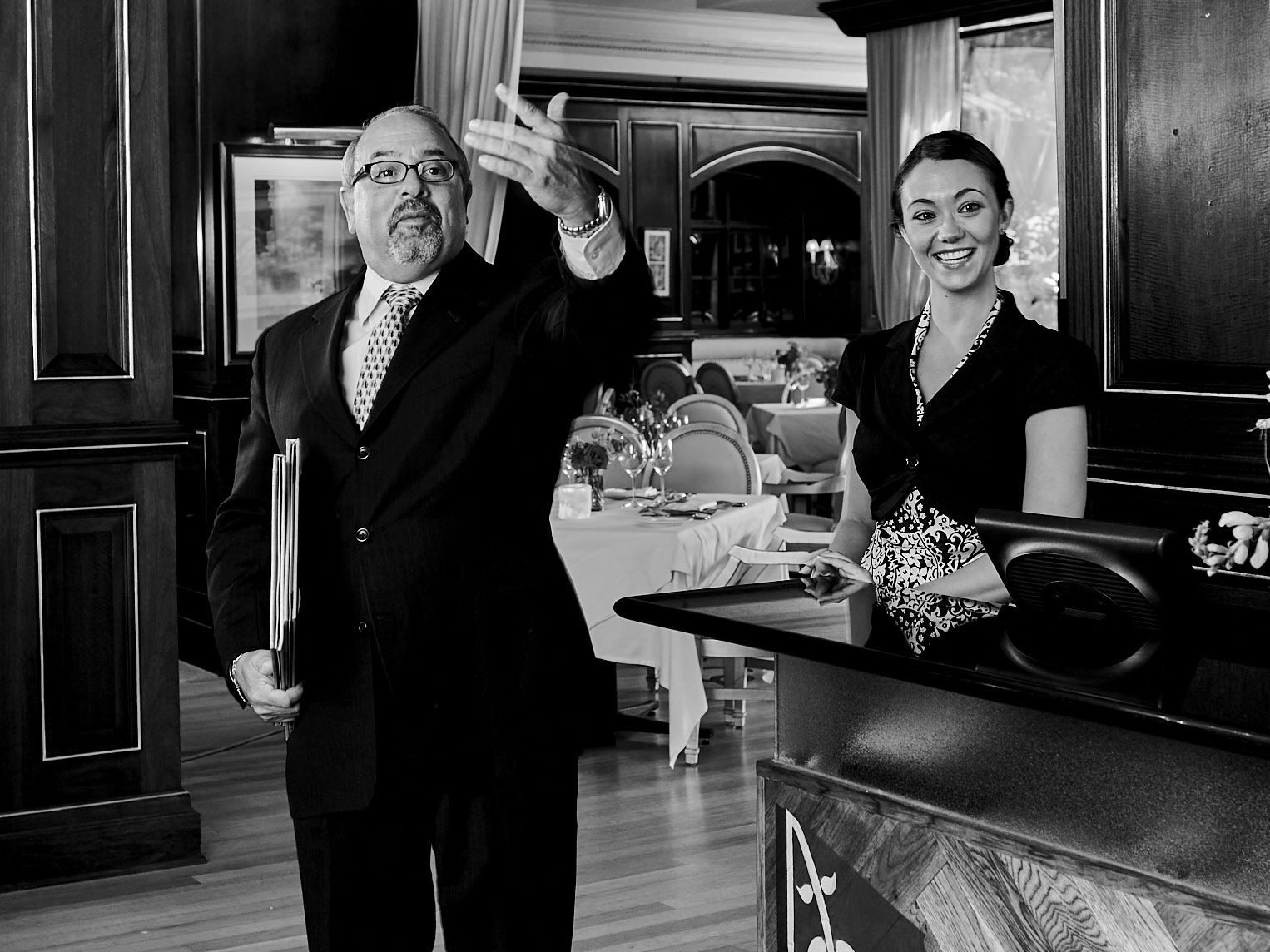
Photos by Joe Vaughn.
In 1994, Mickey Bakst had finally had enough of the quiet northern Michigan life.
That’s when he traded in his minority partnership in the revered fine dining restaurant Tapawingo in Ellsworth and finally succumbed to the persistent advances of the Wisne family, whose stated goal was to build a world-class restaurant in Detroit.
Two years later — and a few miles outside of city limits — Tribute restaurant debuted near a busy if unlikely corner of Farmington Hills to immediate fanfare, garnering a well-heeled, celebrity-studded clientele and media attention from the likes of former New York Times food critic Ruth Reichl, who Bakst says visited four times before naming Tribute one of Gourmet magazine’s 50 best restaurants in America.
“I say with great pride that I believe the restaurant community who remembers thinks that I was part of two of the greatest restaurants ever in Michigan,” Bakst says. “Jim Lark used to tell us that his restaurant (The Lark) was the best, but Jim was one jealous motherfucker.”
Tribute’s impact on Midwestern dining is difficult to overstate, with many of its then-young cooks now running acclaimed kitchens of their own and the former staff’s tentacles extending to the upper echelons of American hospitality.
And though it was chef Takashi Yagihashi that earned the restaurant accolades like a coveted James Beard Award, Bakst’s front-of-house prowess and experience as a maitre d’ still resonate with those who had the privilege of experiencing it first-hand. (It was Bakst who lured the up-and-coming Yagihashi away from Chicago’s much-lauded Ambria to open Tribute in the first place.)
“We were given the keys to the most theatrical-looking restaurant in America and told to do whatever it took to create a theater where we could entertain,” Bakst says. “We created experiences for people at Tribute that I know they still talk about because people would come into the Charleston Grill and go, ‘Oh my god! You’re Mickey!’”
After reaching the pinnacle of Detroit-area fine dining, both Yagihashi and Bakst left Tribute in 2004, the former decamping to Las Vegas and the latter to Charleston, S.C.
In Charleston, Bakst became general manager of the Charleston Grill and over the years earned the title as Charleston’s “Unofficial Mayor” for his generous philanthropic efforts in and around the city.
Bakst retired from the Charleston Grill and the day-to-day restaurant life in 2020 amid the COVID-19 pandemic but remains active in the community. Recently, he’s turned much of his attention to Ben’s Friends, an organization he co-founded in 2016 with Steve Palmer of Indigo Road Restaurant Group for hospitality industry employees struggling with addiction.
(The Detroit chapter of Ben’s Friends meets at Frame every Monday at 11 a.m.)
We caught up with the legendary maître d’ to talk about his craft, the importance of greetings in hospitality, and how the great ones really care.
This conversation has been lightly edited for brevity and clarity.
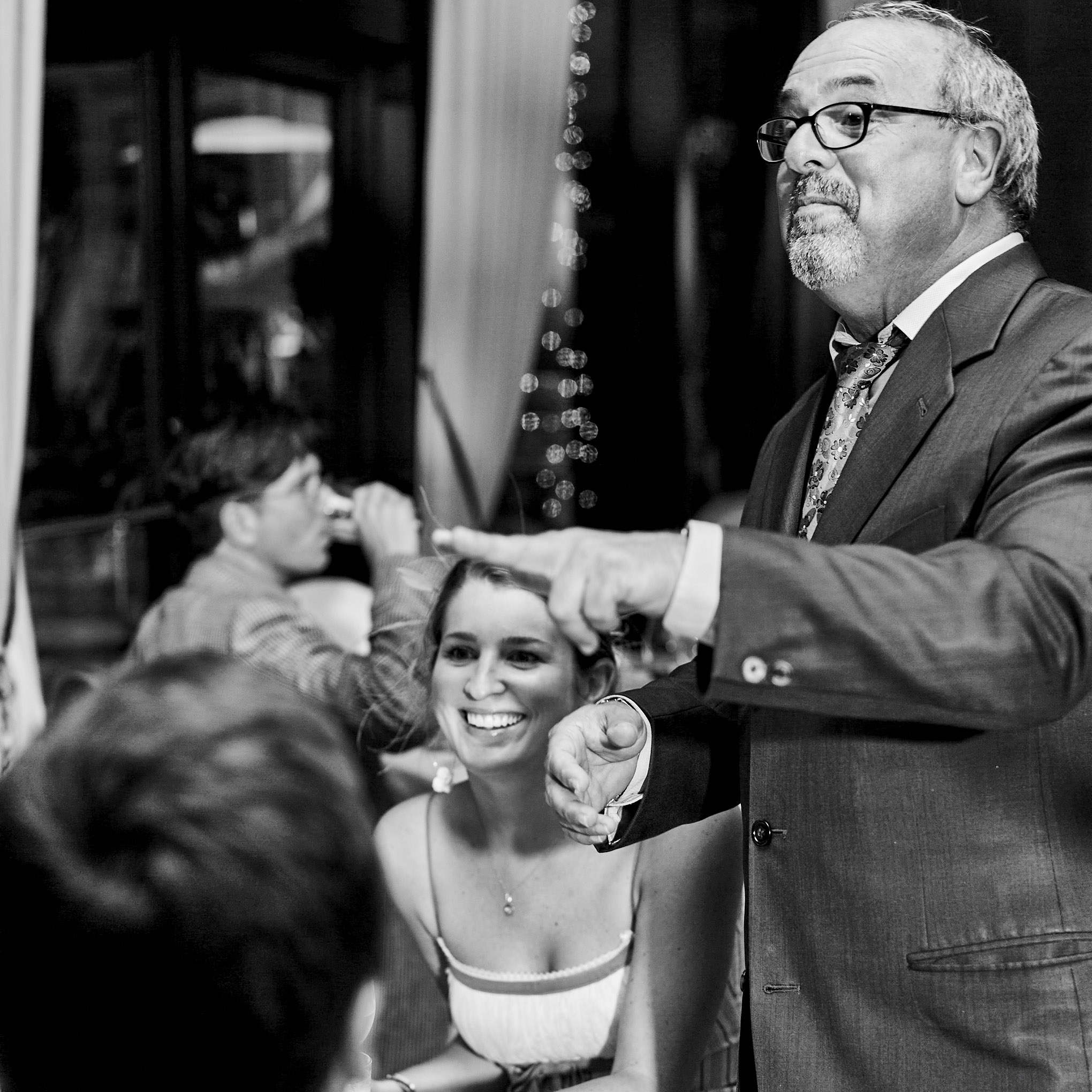
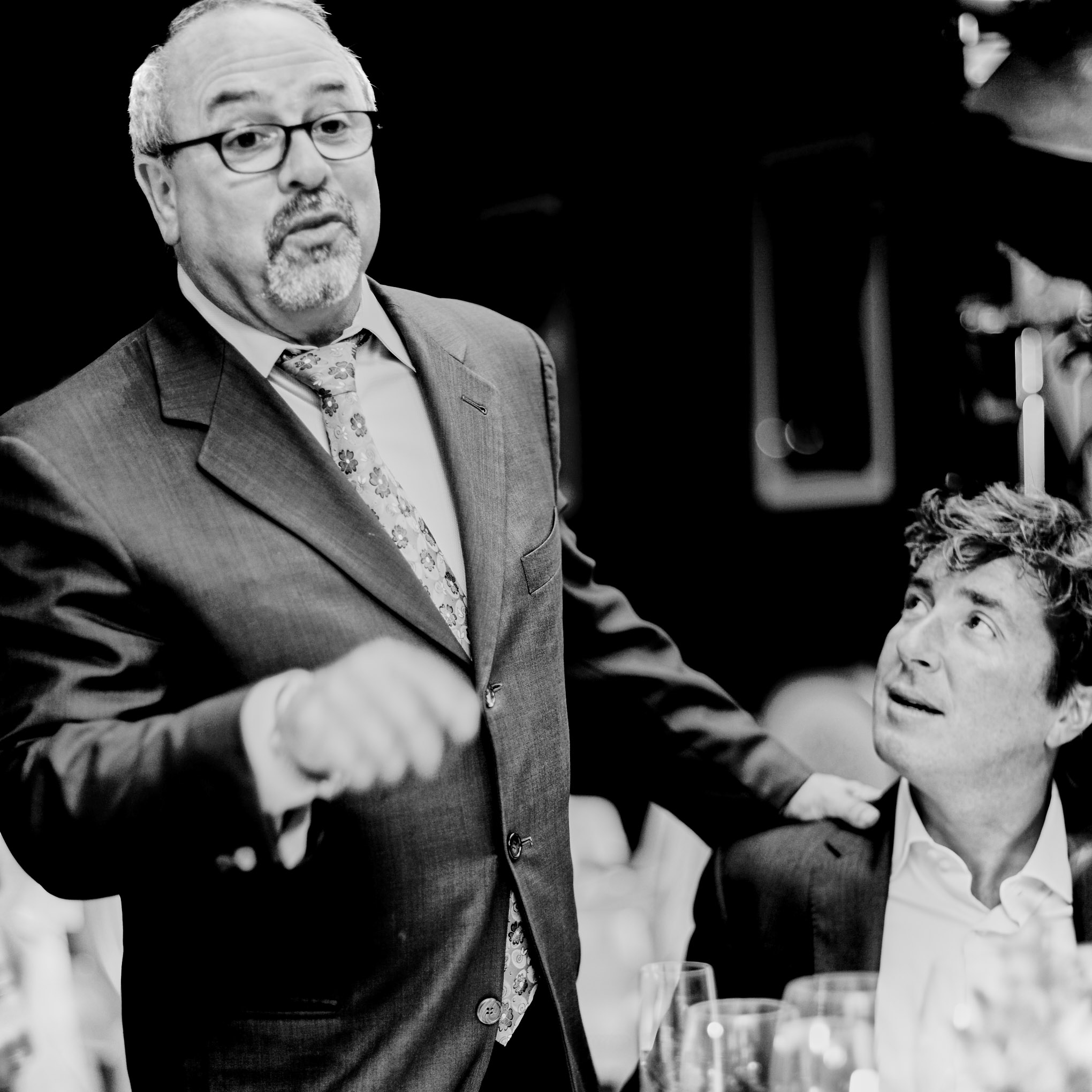
Frame Stories: What was your first restaurant job?
Mickey Bakst: My first job was a job where I ended up being a partner in the restaurant. A friend of mine owned a night club dinner house in Newport Beach, California. He and I used to get high together and I partied at this place. (Editor’s Note: Bakst has been sober since age 30.) One day, he said his doorman couldn’t make it. He said, “Mick, will you help me?” I said, “Of course.” Almost 50 years later, I can still remember the absolute joy I got from reading people, making people laugh while they waited in line. I started singing. I started dancing. And the greatest thing that happened was when people walked out of the restaurant and said, “Man, that was great, but you were the best part of the night.”
FS: Did you ever consider working in the kitchen or were you out front from then on?
MB: I went into the kitchen and tried. I hated the hell out of it. For me, the magic of the restaurant is being in front of the guest and seeing their faces, watching them as they are interacting with each other, figuring out what you’re not doing right, and the joy of walking through the dining room and feeling the air against your cheek as you reach out to welcome somebody and touch their shoulder and say, “Thanks for coming in.” Nothing like it in the world.
FS: For those who don’t know what a maître d’ does, can you break down what a typical day looks like?
MB: You’re a conductor, plain and simple. Your job is to envision the entire night before the night happens. Your job is to pull all of the components from the kitchen to the servers to bartenders and bussers, and get them working in the same pattern and flow. Your job is to greet your guests and attend to their every need, trying to anticipate before they even realize the things that they need. Your job is to surprise people in a way that makes them smile. Your job is to create a mood that brings people together. Your job is to make sure that every component of the restaurant flows together to create the ultimate experience for not just the guests who come, but for the employees who are part of it.
FS: A stranger walks through your restaurant’s door. Talk me through what happens next.
MB: I greet them the way that I greet everybody — with sincere warmth and a sincere smile. What you have to do is take a couple seconds to see how they react to you. You’ve got to read them. There are people that come in very, very closed. There are those that come in very open. There are people who come in with their eyes wide open like in awe and you know they aren’t regulars of fine dining. And there’s people who you can tell they walk in with confidence because they’ve been in a hundred places like yours. And from there, you just model. You take your basic warmth, caring, and desire to satisfy and you play off of their reactions.
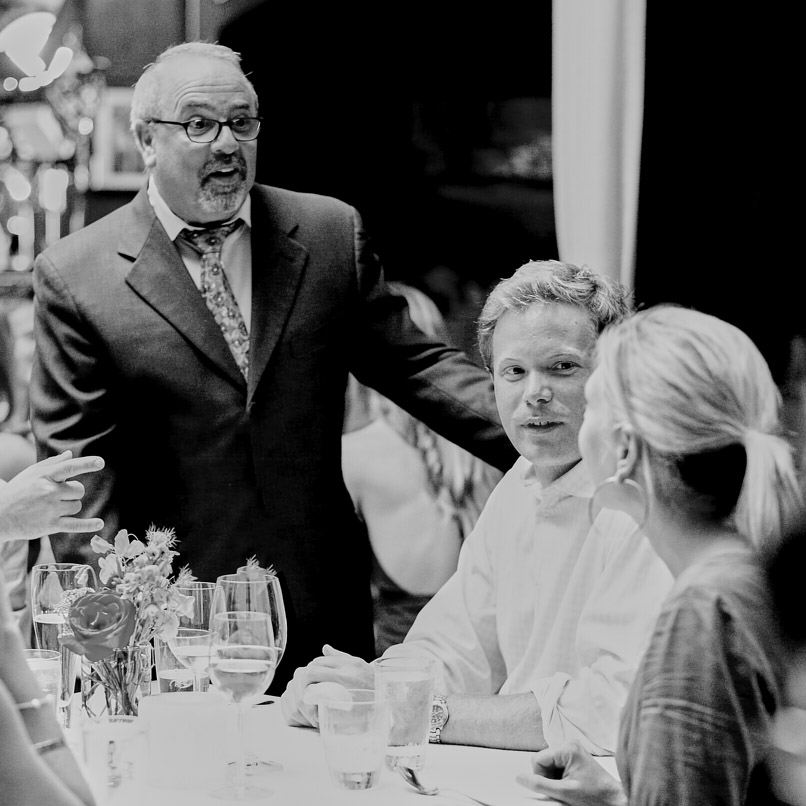
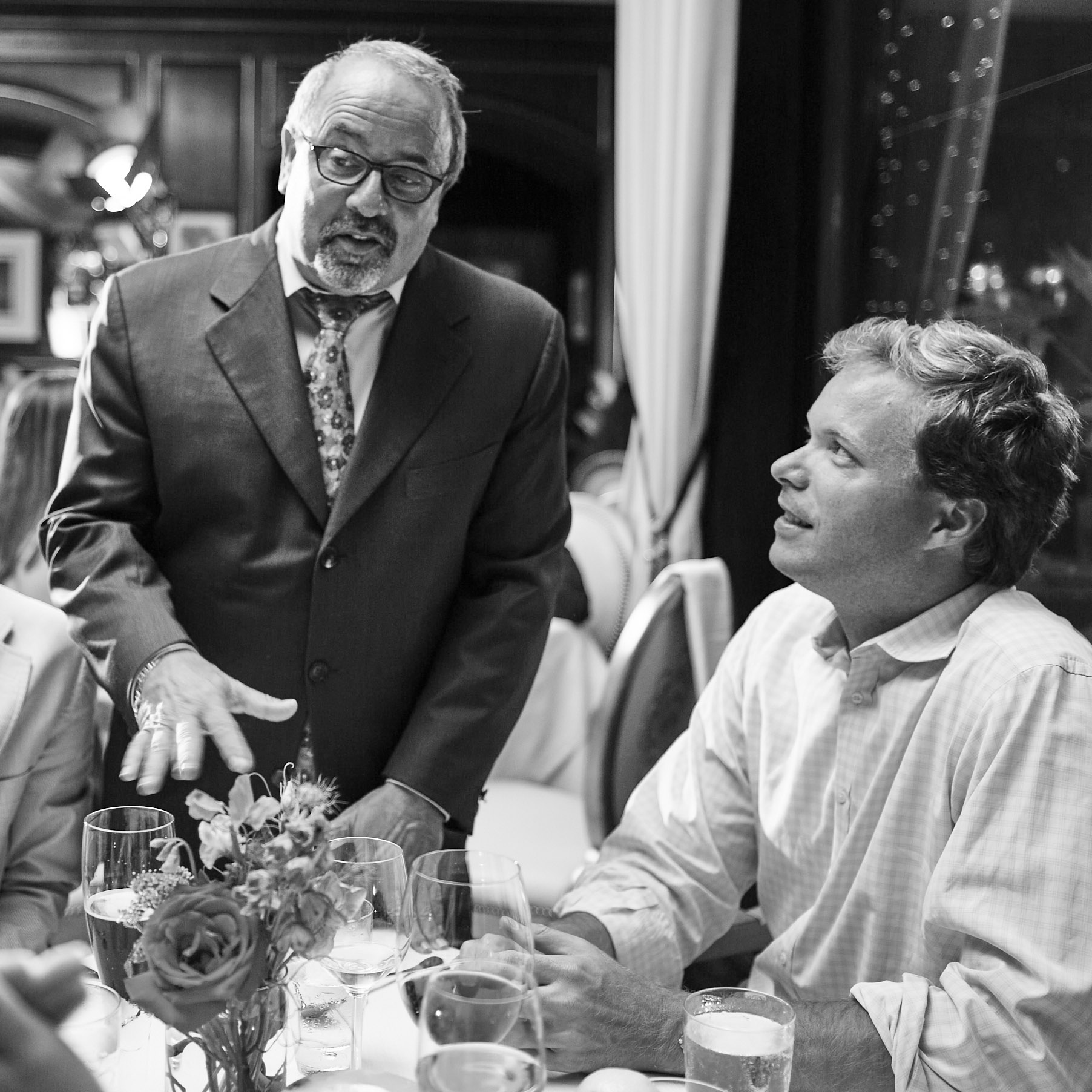
FS: How important is that initial greeting to your guests?
MB: Imagine you’re going to buy the best suit you’ve ever bought or the best dress you’ve ever bought. And you walk into the store and look around and nobody says hello. And you start looking through stuff and nobody is coming up to you. You finally go and grab somebody and they say, “Sure.” You go up to the counter and they say, “Did you get everything? Thanks for coming. Goodbye.”
Or: You walk into the store and you open the door and somebody is there with their arms wide open going, “Welcome! It is so great to have you here. How can I help you?” You look at the suit and they go, “Wow! That would look great on you, but maybe you want to try this one.” They take you into the room, and while you’re changing, they bring over a couple things and say, “You know what? I thought you might like this.” And after you’re done, they walk you to the counter and tell you how great it was for you to be there.
Which one are you going back to?
FS: What’s the secret to giving that kind of treatment?
MB: I’m not a religious guy, but the truth of the matter is I know how I want to be treated. And I want to be treated really nicely. And all I ever did was treat people with sincere enthusiasm, true caring, and in a way that I knew would make me feel good if I was receiving that treatment.
FS: So basically, “Do unto others…”?
MB: I want to point out to you — and I mean this with all sincerity — I’m not the smartest tool in the shed by a long shot. I did not study for my gift. I never practiced my gift. My gift is something that came naturally — an ability to connect with people and make them feel good.
FS: Any other tricks of the trade?
MB: It’s not brain surgery. It’s a smile and sincere warmth. That’s it! It’s reaching out the open hand in a way that says, “I’m truly glad to meet you, to see you, to greet you.” I have never studied. I am not smarter. I just really and truly do care to make people feel good. And I’ve come to accept that people respond to that. And that’s my superpower.
FS: You are now at a point in your life and career where it’s more about passing your knowledge on to future generations. How do you teach these skills to young people?
MB: I teach them by reminding them that we’re all human beings, all struggling in our own way. And it is a gift to us to be able to bring joy to others. Either they get it or they don’t. How do you feel when you do something for your mother that makes her smile? Remember that feeling. That is what you’re trying to do in every encounter.
This is not to pat me on the back, but yesterday I was at a deli in Chicago because 10 people said, “If you’ve never tried Manny’s, you’ve got to try Manny’s.” So we went to Manny’s. When I was done, I typed my address into Uber, and all of a sudden I get a message from the Uber driver. It says: “I love their corned beef sandwich!” I’ve never had a message like that. It made me smile. So I walked in and bought the driver a $24 sandwich. He pulled up and I handed him the bag and I said, “Here’s your corned beef.” He instantly lit up. He said, “Please sit up front with me.” He talked to me about how nobody had ever done that. He said he was in hotels for years and years and that he’d lost the feeling of watching people have this great time, because people don’t talk to him. I don’t know. Did I do it because I needed this guy to like me? I did it because it just felt right and I knew it would make this guy feel good. What greater joy is there? There’s people that don’t get it. There’s people who don’t give a fuck how you feel. But the great ones really care.




